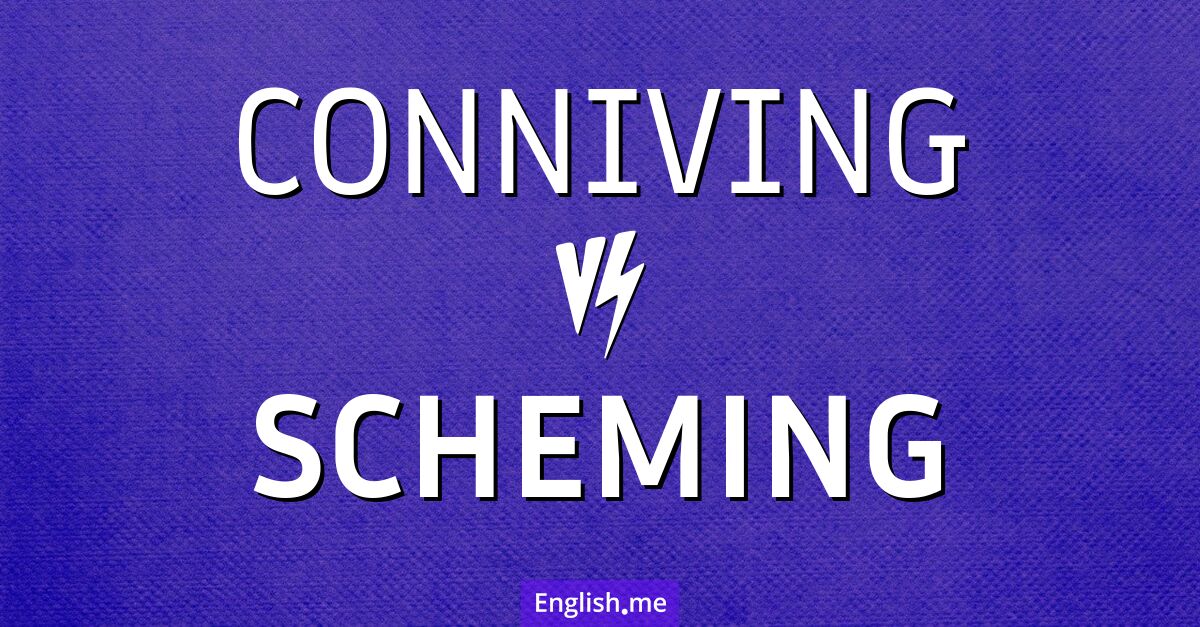"Conniving" vs. "scheming": a subtle dance of deception

 What is similar?
What is similar?
Both "conniving" and "scheming" describe behavior that is cunning and often deceitful, involving secretive and underhanded planning to achieve a particular end, typically to gain advantage over others.
 What is different?
What is different?
The word "conniving" implies a willingness to conspire or assist in underhanded plots, often with a sense of moral compromise or betrayal. It can carry a sense of passive complicity. "Scheming" describes proactive planning and plotting, usually with the intent of achieving one's goals, which may be selfish or unscrupulous. While both indicate deceitful intentions, "conniving" focuses more on the acquiescent or compliant involvement, whereas "scheming" emphasizes the active role in planning.
 Which one is more common?
Which one is more common?

 Examples of usage
Examples of usage
Conniving- She was conniving with her colleagues to undermine the new manager.
- His conniving nature made it difficult to trust him.
- They accused him of being conniving in his ascent to power.
- The scheming villain devised an intricate plot to take over the company.
- She was always scheming ways to get ahead of her competitors.
- His scheming mind never seemed to rest, always planning the next move.

 English
English español
español française
française italiano
italiano deutsche
deutsche 日本語
日本語 polski
polski česky
česky svenska
svenska Türkçe
Türkçe Nederlands
Nederlands